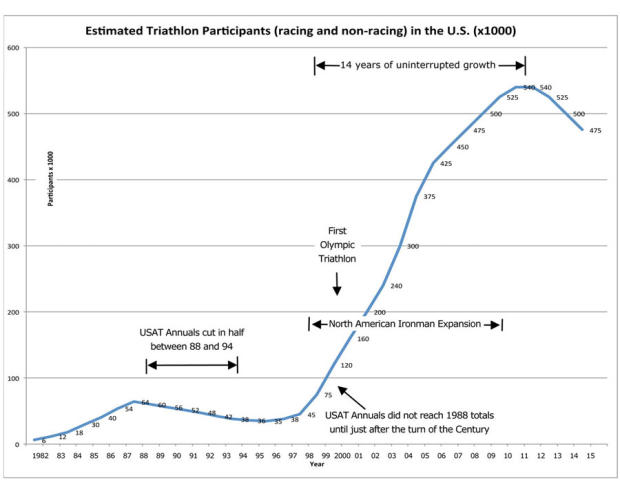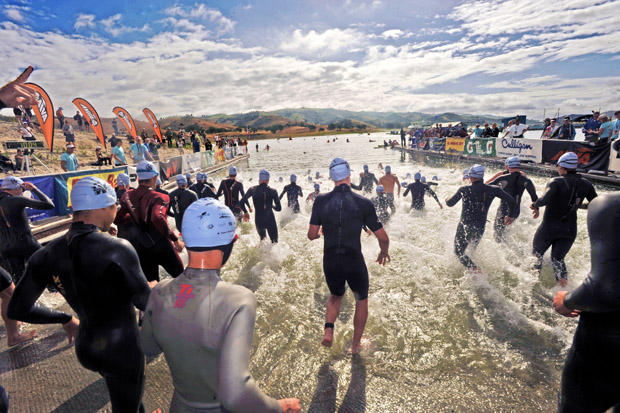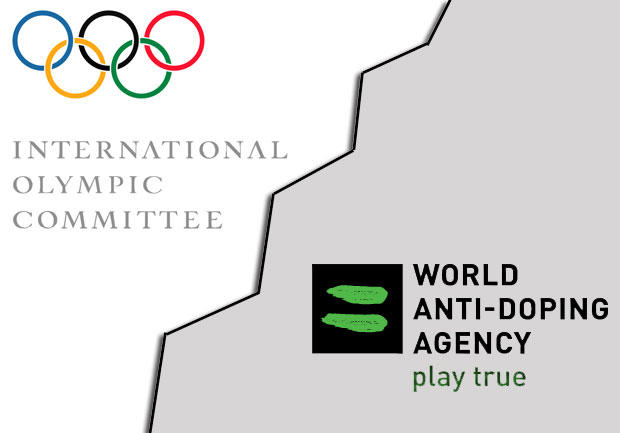There is one way to become an Ironman
Tine Decker rode the 9th fastest bike split at Ironman Texas. This make her the 9th all time fastest cyclist in an Ironman race, and the 10th over the “full” distance, also behind Daniela Ryf’s time for the distance achieved at Roth in 2016.
Does this sound right to you?
The race course in Texas was about 2 miles short, more or less, and this isn’t anything new. Frankfurt, Austria and other Ironman races have courses of suspect distances and Ms. Ryf’s race was contested in a place where the ride hasn’t always been 112 miles.
None of this is Tine Decker’s fault, who rode a marvelous race, nor is it the fault of Andrew Starykowicz (below, during his record setting ride) or Jen Annett, who rode world bests for the Ironman brand and the full distance, for men and women respectively. That their achievements will be met with, “yeah, but…” is an unhappy result of their fine performances on Saturday. It’s like the long jumper who breaks the world record but does so in a wind barely over the legal limit. With one exception: the long jumper doesn’t get the record.
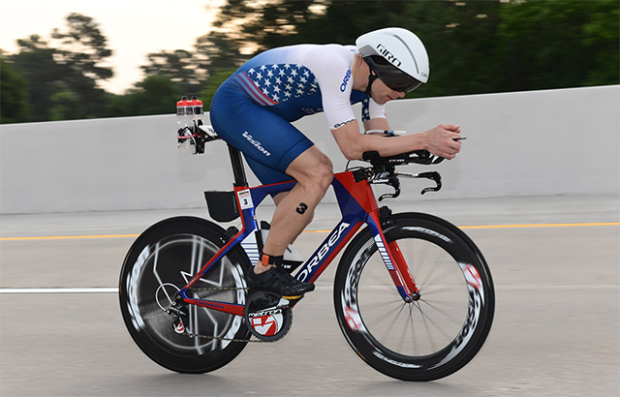
As you know, it’s hard to get lawyers and doctors to testify against each other in malpractice cases. That’s how I am with race organizers. I know how hard this business is – how many things can go wrong. Therefore, while Ironman Texas was marred by a course shortened for safety, and a lack of officials during most of the bike leg – again for safety – I’m not going to overharsh on Ironman for this because the plans for a “war" of this complexity don’t survive the first battle.
Ironman is the best-equipped high-complexity race organization in the world. By far. When Ironman bought Rock ’n’ Roll Marathons some folks probably thought that of Rock ’n’ Roll’s organizers. Not even close. Ironman does everything Rock ’n’ Roll does backwards and in heels. Pardon the war metaphors but I’m reminded of George C. Scott in the movie Patton: "No other outfit in the world could pull out of a winter battle, move a hundred miles, go into a major attack with no rest, no sleep, no hot food. God… God, I'm proud of these men.” Nothing matches the risk and arduousness of actual war but Ironman’s race organization really is the Third Army of race organizing. That’s how I feel about Ironman’s race crew, who pulls out of one battle and – hopefully with some hot food – heads right back into battle the next week.
Texas is a very popular Ironman held on a snakebit course. Will this year’s experience give you more, or less, motivation to enter? Part of the reason it’ll fill is that you think you can get a fast time there. This year's fast times were due to: good weather, no hills, no marshals either, and a short course. If you competed in this race – be honest – would you trade your fast time for zebras on motos and those extra 2 miles? I don’t know your answer, and it’s a little depressing to me that I don’t.
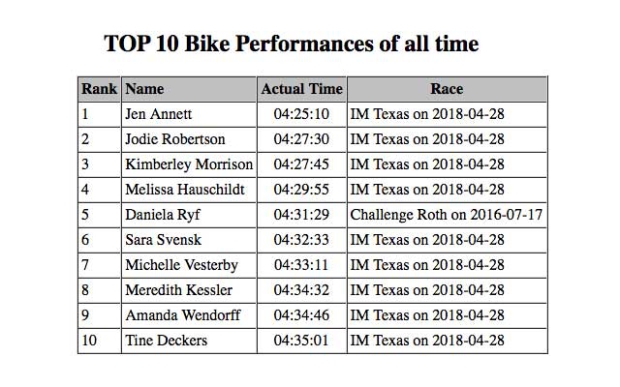
It’s very early, but on our new poll 80 percent of you think a record is not a record in an Ironman unless it included 2.4 miles of swimming, 112 miles of cycling, and 26.2 miles of running. Some of you think it’s okay to be a tiny bit short, if a conversion formula is applied. For example, Andrew Starykowicz rode for 235 minutes. Had he ridden 2 more miles at that pace, completing 112, he’d still have ridden 3hr59min20sec. Accordingly, some of you feel that should be his record.
So far, only 8 percent of you think his 3:54:59 should be the Ironman record, and I don’t think Andrew feels very good about that, notwithstanding that he knows he rode faster than any triathlete has over 110 miles. Certainly none of you feel that Andrew is anything but a victim of circumstance. I fear that having these kinds of debates erodes the Ironman brand.
I had an advantage you don’t. When I raced the Ironman in 1981 it was precisely because it was hard. Not because it was easy. Or fast. My generation built the brand. I hate to sound like an old get-off-my-lawn fogey, but if you don’t ride 112 miles you don’t get the record for riding 112 miles. If you rode 112 miles on a packed course that – for whatever good reason – had no marshals, you still didn’t ride 112 clean miles.
Ironman is going to disappoint some folks if it takes my view. It’ll sacrifice feelings, but it's that or sacrifice the brand.
Since 2007 Ironman has been owned by folks primarily interested in profits rather than in making sure the bike leg is all of 112 miles, that the t shirt has enough cotton in it, or whether it’s Mike Reilly or Pike Smiley who announces you’re an Ironman when you cross the line. That informs a number of things, necessarily, including where these races are held. Sometimes the exigencies of finance place events in locations not optimized for an Ironman race. So… things happen. When they do, I feel bad for Ironman and for the athletes it services.
However, I’m certain that if these things were imperatives – if it’s truly urgent to Ironman and its owners that a 112-mile ride be 112 miles – then by God that ride will always be 112 miles. We’ll know when it isn’t, because you all have a GPS.
Things happen, and I'm sensitive to the difficulties of producing an Ironman race. Just, if you truly want to be an Ironman, demand an Ironman from your race vendor. (I don't hear you demanding it.) When Pike Smiley says you’re an Ironman, you’ll feel much better about it if you know you truly earned it.
While I’m on a roll Mark Allen – as well as I can tell – still has Kona’s run record.
[Master data guru Thorsten Radde crunched the top-10 all-time women's rides for me.]


